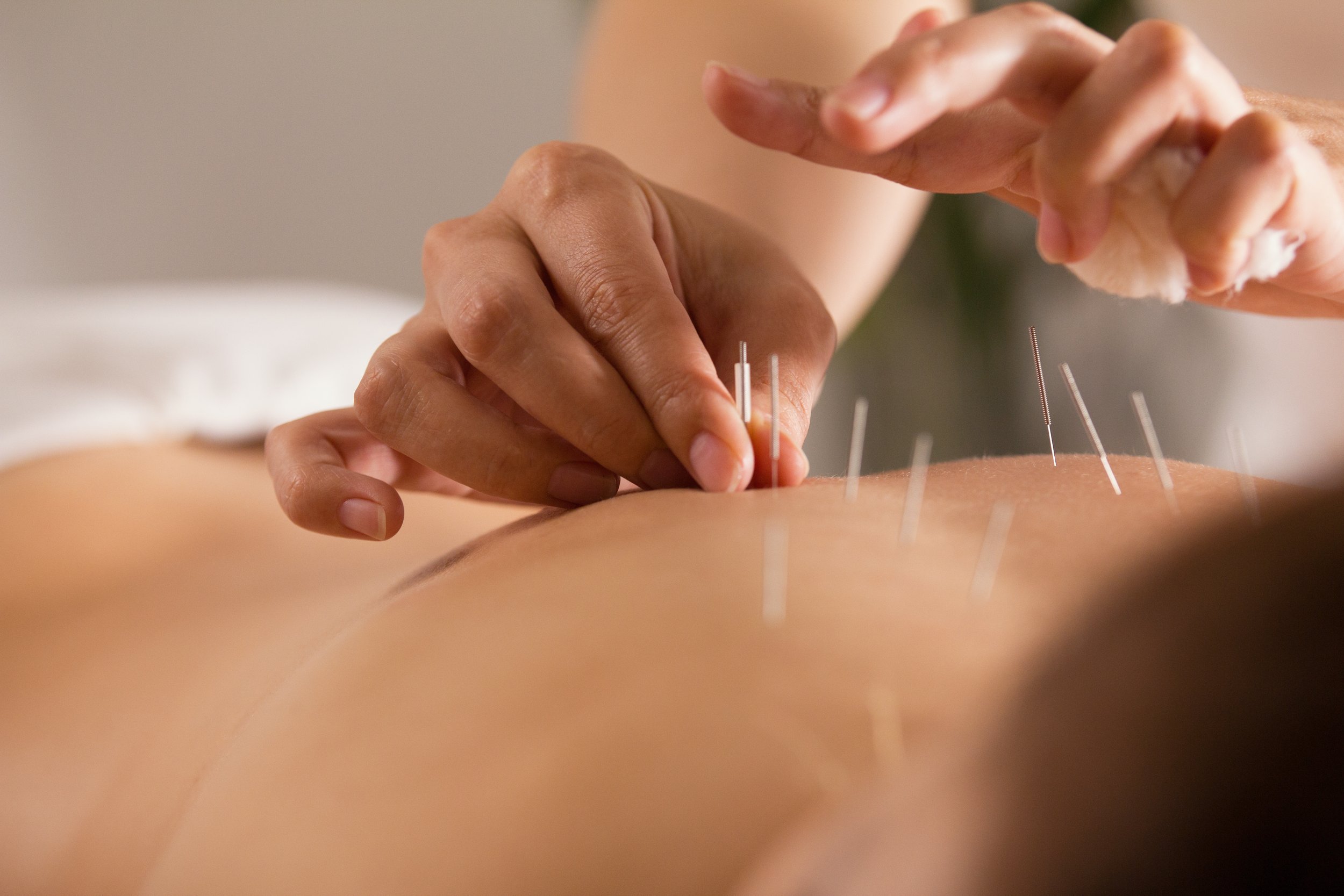
Acupuncture + TCM for General Health
What is Acupuncture, and What Does it Do?
Acupuncture is part of a medical system that originated in China over 3,000 years ago. It involves the insertion of tiny, hair-thin needles at specific anatomical points. This process restores energy flow in the body, ensuring equilibrium and balance. When the energy flow is restored, blood and Qi circulate effectively, allowing the body to return to balance and heal naturally.
What are Qi and Meridians?
Qi (pronounced "chee") is the vital energy that flows through specific pathways known as meridians. Meridian-based Acupuncture is based on the understanding that the body is a dynamic system capable of self-regulation. Optimal health allows for smooth Qi and blood flow through the meridian system. However, daily life presents numerous challenges that can disrupt this natural balance. Physical injuries or stress can create muscle tension, forming persistent patterns. If these tension patterns aren't addressed, energy flow becomes blocked, like a dam obstructs water.
This disruption can lead to pain, numbness, loss of function, or illness. Acupuncture helps release blocked energy and stimulates natural healing through various physiological systems. Modern research has shown that Acupuncture positively affects the nervous, endocrine, immune, cardiovascular, and digestive systems, helping to alleviate pain and improve sleep, digestive function, and overall well-being.
Does Acupuncture Hurt?
The insertion is relatively painless. Some needles are not felt, while others cause a slight pricking sensation that quickly dissipates. Be assured that your acupuncturist will adjust any needles to minimize discomfort. Overall, Acupuncture is a pleasant experience. After the needles are in and the patient is comfortable and warm, it is common for people to feel so relaxed that they take a nap.
How Often Should I Go?
The frequency and number of treatments differ from person to person. Some people experience dramatic relief in the first treatment. One to two treatments per week for several months may be recommended for complex or long-standing chronic conditions. For acute problems, usually fewer visits are required, usually eight to ten. Your acupuncturist will devise a treatment plan after a thorough consultation and initial treatment.
What Does Acupuncture Treat?
The World Health Organization (WHO) recognizes more than 40 conditions That can be treated with acupuncture. However, it is essential to remember that Acupuncture treats the whole person, not just the condition. Even if your condition is not listed below, you may still benefit from Acupuncture.
Adverse reactions to radiotherapy and/or chemotherapy
Arthritis
Allergies
Anxiety
Arthritis
Asthma
Bell’s Palsy
Common Cold
Tennis Elbow
Crohn’s Disease, Colitis
Depression
Digestive Disorders
Eye Disorders
Frozen Shoulder
Fibromyalgia
Urinary Disorders
Hypertension
Hypotension
Infertility
Insomnia
Irritable Bowel Syndrome
Menopausal Syndromes
Menstrual Disorders
Migraine Headaches
Morning Sickness
Nausea and Vomiting
PMS
Repetitive Stress Injury
TMJ
Sciatica
Sinusitis
Stress
Stroke and/or Stroke Prevention
Sprains
Tendonitis
